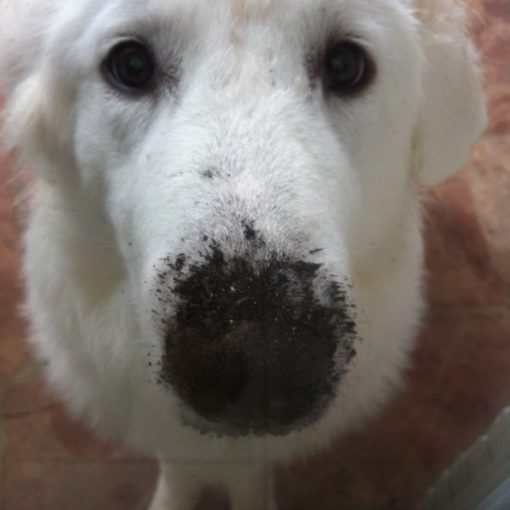Back in the day…
My Mom often referred to people she knew who suffered from mental illnesses as having “nervous breakdowns”. I would hear her say, “So-in-So, you know, she had a nervous breakdown…” or my Grandmother would fret about a friend who had really sunken down and was struggling – what could she do, she asked? How could she help? Usually, it was baking something and paying a visit…
Then there were the dark situations that people just went silent about. My great-aunt’s husband went into their barn with a shotgun and blew his brains out. My Dad told me that. Not my Mom, not my grandparents… my Dad – because they wouldn’t talk about it… They were ashamed. The subject was taboo. People silently suffered. Nobody did anything but mostly stayed away from them, as if it was contagious. We kids were never taught about it.
My mother never faced her mental health issues until she was in her late fifties – and that was too late. The damage was done. She couldn’t get my Dad to go with her to a counselor. It was something “other people” had to deal with. After my Dad was early-retired, he suffered from horrible depression. He never addressed it. He lived the last ten years of his life, fully miserable because of my Mom’s and his issues that they never addressed. It wasn’t something that people did. That was what my Dad said. He thought it “marked you”. I worked as a mental health support professional, for ten years and I still could not convince them to get help.
The great-uncle who I never met, driven to suicide, by what? He was married to my grandfather’s sister. At times, people mentioned that she was a pretty difficult person at times. Who knows? The reasons were deeply buried in family history. That is where they remain to this day. That poor man. He was probably in a desperate state that drove him to do that. Depression had likely set in for some reason we will never know. His son, my Mom’s cousin, became an alcoholic – very sociable – married an alcoholic – they obviously fought a lot because they were divorced once, then married again. He was very successful, business-wise, but you know he was self-medicating. It’s what people did. It’s still what people do.
Through time, it is the uncomfortable nature of the mental illness that people have – and most have difficulty with facing it with people outside of their families – sometimes within their families. It is, for some reason, viewed as being “flawed” or “weak” or somehow inadequate. There are shades of it, also. A “difficult” personality – might be what it’s called, but then when behavior gets overtly out of bounds, eventually people say that the person is mentally “unstable” or having issues, others might just say the person is “sick in the head” or some other derogatory term. Some people are not very kind, at times, when something makes them uncomfortable – they just paint it negatively to make themselves feel better.
Very brave people today are changing this for all of us…
John Fetterman, Lina Hildalgo, many others are coming forward out of the shadows to say, “hey, I need to go take care of this illness and get better. Then, I’ll be back to do what I was doing…getting stronger so that I can be…” Those include: a better spouse, a better son or daughter, a better friend, a better public servant, a better parent, a better working person – colleague…
If people do not or are not allowed to do this, they suffer – sometimes they act out – and sometimes the acting out is towards others or towards themselves, and the consequences are fatal.
If people disapprove of them and call them out, those people are the ones who should be put down for doing that. Treating those who are suffering in that way is just plain wrong.
Mental illnesses can happen to anyone. Too much stress. A head injury. A brain tumor or other physical disease of the body. A genetic condition that develops over time. A relationship break-up. A newborn baby. Menopause changes. Middle-age adjustments. Combat exposure to violence. Surviving a violent crime. All of these and more can trigger mental health conditions that are treatable if caught early and addressed by treatment professionals.
For Maureen… For Peter… For Susan… For David… For Tom… For Julia… For Andy…The people we’ve known who didn’t make it. The tragedy exponentially affected people in their lives. Patients. Friends. Work colleagues. Husband. Family. Daughter. Students. Teenage Sons. Family.
Maureen. The psychiatric nurse who didn’t show up at work. Never a day at work did she act as if she was suffering. Then one day… She took her own life…
Peter. The employee who was found by his co-workers, after playing Russian Roulette – he lost. Always cocky, always jocular, but underneath, there was something. No one really knew. Until he was found that day…
Susan. The middle-aged well-loved wife, daughter and sister, cousin, and friend – who had struggled since her teens with knowing something just wasn’t right, seeking a diagnosis, and finally, learning that all the treatments she had endured were not what she needed – the errors in medical assessments, that ignored certain very loud clues – were not heeded. In the end, she just couldn’t take it anymore. After fighting cancer, and seeming to have won remission with a positive diagnosis for the future, she had hoarded pills, over years, then taken them all at once, lying down for her final sleep…
David. The employee who was found in the employee parking garage on the weekend with a loaded weapon, who was hospitalized, then returned to work – years later, he succeeded in what he tried to do years before – leaving his nine-year-old daughter to grow up without her dad. This was the daughter he adored – with every day, there were always those times where he would be showing her in her ballerina costume – in her cheerleader outfit – showing her artwork – her cards she made for her Daddy, telling him how much she loved him – and then – he wasn’t anymore. He was gone…
Tom. The guy with chronic clinical depression, at times extremely severe, who in his life had struggled with everything – with his father’s approval – with integrating into the world – during his early 20’s had made suicide attempts, been hospitalized, then somewhat recovered – but, was still struggling – only to, years later, publicly take his own life in a park – found by someone early in the morning on a walk – he was a teacher who left his students and co-workers scratching their heads…
Julia. The proud single mom of two teenage boys – highly competent in her career as a technologist – then one day, whatever it was – she decided it all was too much.
Andy. The son, the brother, the dad, the uncle – fighting bi-polar depression for decades, multiple suicide attempts – finally losing the battle with the disease and succeeding at ending his pain…
They may have suffered silently. With some of them, until the fateful day, we never knew.
Some sent calls for help in different ways. People. Family. Friends. Employers. Work Colleagues…tried to send help and get them help, but no matter what, the disease was too great and too consumptive. Because of the delays in diagnosis, treatment, and lack of support early-on. Because of the shame and the hiding.
We now know that these instances of disease are really diseases of the brain – chemical issues or imbalances caused by many different things – sometimes sudden, sometimes progressive, sometimes there and not even noticed until the critical mass and some stressors push the tipping point. How we didn’t know, at times meant we either ignored the signs or the person was very good at masking what was going on.



